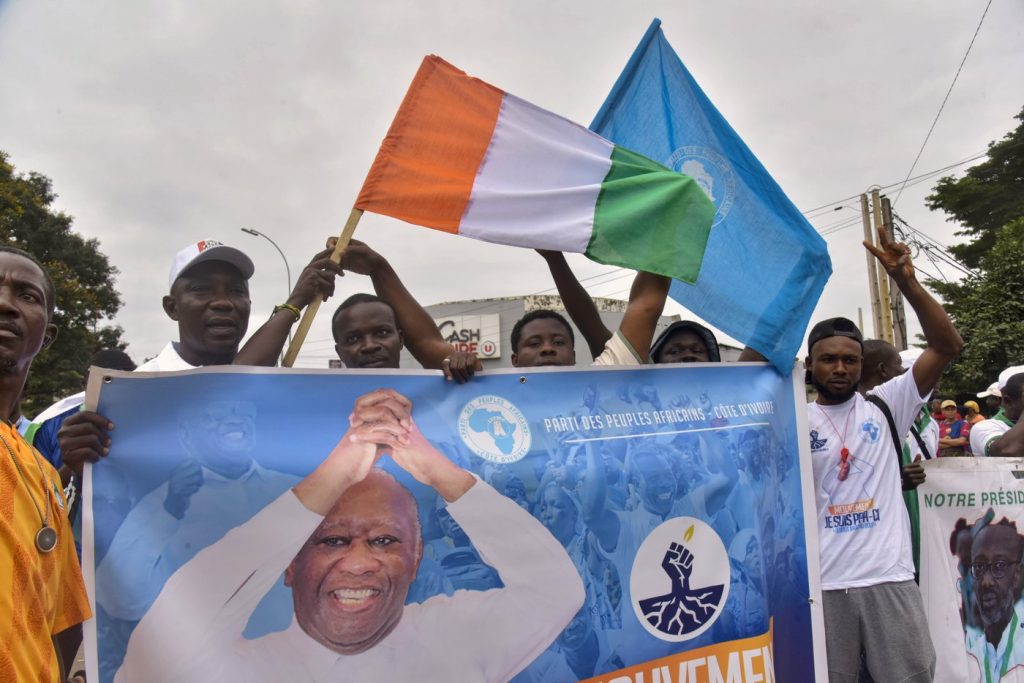ABIDJAN, Ivory Coast (AP) – Thousands of Ivorians protested in the streets of Abidjan, demanding the inclusion of opposition leaders in the upcoming presidential election scheduled for October. The rally took place in Yopougon, a bustling suburb of the capital, where demonstrators held banners inscribed with messages like, “Enough is enough!” and “No true democracy without true justice.”
The protests were primarily fueled by the electoral commission's decision earlier this year to bar four prominent opposition figures, including former President Laurent Gbagbo and former Credit Suisse CEO Tidjane Thiam, from running in the election. Gbagbo and Thiam had united to challenge the current president, Alassane Ouattara, who is seeking his fourth term. The president’s bid has been controversial, particularly after he amended the constitution in 2016 to eliminate presidential term limits, provoking widespread criticism and unrest.
Amid the protests, Sagesse Divine, an activist, expressed the dissenting voices of many, stating, “We don’t want a fourth term, and we want the electoral roll revised. That’s what we are asking for. We want all candidates’ names included, and we want to go to the elections in peace.” The demand for a revised electoral roll reflects broader frustrations over the fairness of the electoral process.
Gbagbo and Thiam’s collaboration aims to present a formidable opposition to Ouattara, who recently reaffirmed his decision to run for a fourth term at the age of 83. Justifying his candidacy, Ouattara argued that the nation faces unprecedented security and economic challenges, saying the experience is necessary for effective governance. However, many Ivorians believe the incumbent's continued hold on power undermines democratic principles.
Thiam, who leads the Democratic Party of Ivory Coast, had recently won his party’s primary without opposition, garnering significant support. However, he was barred from running due to his status as a dual citizen at the time of candidacy declaration—a violation of Ivorian law, which prohibits dual nationals from presidential runs. Despite having renounced his French citizenship later, the electoral commission maintained its stance against his candidacy, further fueling public anger about the electoral process.
The history of elections in Ivory Coast has been marked by tension and violence. Previous elections have resulted in fatalities, particularly when Ouattara announced his third-term bid, which sparked violent confrontations. The current political climate, influenced by Ouattara's constitutional changes and the exclusion of key opposition figures, raises concerns about the potential for civil unrest as election day approaches.
West Africa has seen a trend of leaders modifying constitutional term limits to extend their rule, with Ouattara's actions placing him among this growing number. The current political tension marks a critical period for Ivory Coast, drawing attention from international observers who are concerned about stability in a region that has recently experienced increased threats from extremist groups linked to al-Qaida and the Islamic State.
As the October presidential election nears, the unfolding situation presents a vital test for democracy in Ivory Coast, where citizens are increasingly vocal about their demand for a transparent electoral process that accommodates all political voices.











